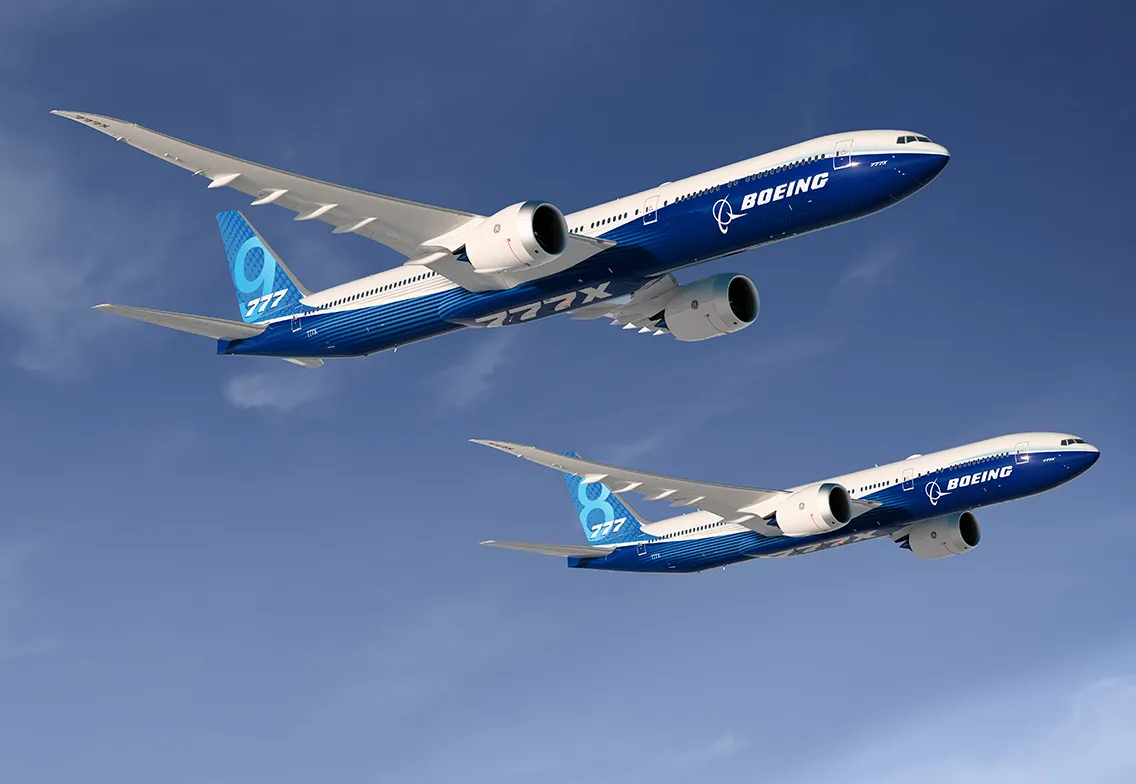
Boeing slows work on ultra-long-range 777X may pose problem for Qantas timetable
Aug 15, 2019

Boeing's decision to slow work on the ultra-long-range variant of the 777X aircraft could complicate Qantas' ambitious plans for expanding its fleet and launching new long-haul routes. The delay in production and certification of the aircraft may hinder Qantas' timeline for introducing these planes into service, impacting its strategy to connect Australia with distant destinations. This situation raises concerns about potential operational challenges and increased competition, as other airlines may capitalize on the opportunity to enhance their offerings. Qantas will need to navigate these uncertainties carefully to maintain its competitive edge in the evolving aviation market.
The aviation industry is constantly evolving, and as airlines explore new opportunities for ultra-long-haul flights, manufacturers like Boeing are under pressure to deliver innovative aircraft. Recently, reports have surfaced that Boeing is slowing down its work on the ultra-long-range 777X. This decision may pose significant challenges for Qantas Airways, which has been eagerly awaiting the arrival of this aircraft to expand its international operations.
The Boeing 777X: A Game Changer in Aviation
The Boeing 777X is touted as one of the most advanced aircraft in the world, designed to offer greater fuel efficiency, enhanced passenger comfort, and the capability to fly longer distances without needing to refuel. With a range of up to 8,700 nautical miles, the 777X allows airlines to connect distant markets, making it an ideal choice for Qantas as it looks to strengthen its presence in the Asia-Pacific region and beyond.
Qantas' Ambitious Timetable
Qantas has ambitious plans to utilize the 777X for its Project Sunrise initiative, which aims to establish non-stop flights from Australia to major cities such as New York and London. This project is expected to significantly reduce travel times and open up new opportunities for business and leisure travelers. However, the delays in the 777X program could hinder Qantas' timeline for launching these long-awaited routes.
Impact of Boeing's Delays on Qantas
The slowdown in the production and development of the 777X raises concerns about Qantas' ability to meet its operational goals. The airline has already invested considerable resources into planning these routes and marketing them to potential customers. Delays in aircraft delivery could lead to missed opportunities and affect Qantas' competitive edge in the global aviation market.
Challenges Ahead for Qantas
Several key challenges arise from Boeing's decision to slow work on the 777X:
| Challenge | Description |
|---|---|
| Delivery Delays | Potential delays in receiving the new aircraft could push back Qantas' planned launch dates for international routes. |
| Market Competition | Other airlines may seize the opportunity to fill the gap in ultra-long-haul services, intensifying competition for Qantas. |
| Customer Expectations | Frequent flyers and customers may become frustrated due to the lack of new route options, impacting brand loyalty. |
Qantas' Strategic Alternatives
In light of these challenges, Qantas may need to explore strategic alternatives. Some potential options include:
- Utilizing Existing Fleet: Qantas could optimize its current fleet of aircraft for long-haul routes while waiting for the 777X.
- Partnerships and Alliances: Collaborating with other airlines to offer connecting flights could mitigate the impact of delivery delays.
- Expanding Code-Share Agreements: Enhancing code-share agreements with other carriers can help Qantas provide more options to customers.
Long-Term Outlook for Boeing and Qantas
While the current situation poses challenges, it is essential to consider the long-term outlook for both Boeing and Qantas. Boeing has a history of overcoming production hurdles and delivering successful aircraft models. Once the 777X enters full production, it could revolutionize long-haul travel and provide Qantas with the tools it needs to excel in the competitive aviation landscape.
For Qantas, remaining adaptable and proactive will be crucial in navigating these uncertainties. By implementing strategic alternatives and maintaining open communication with customers and stakeholders, the airline can position itself for success in the future.
Conclusion
The slowing of work on the ultra-long-range Boeing 777X could significantly affect Qantas' timetable for launching non-stop international flights. As the airline faces challenges related to delivery delays, market competition, and customer expectations, it must also explore strategic alternatives to mitigate the impact. Ultimately, the long-term relationship between Boeing and Qantas will play a pivotal role in shaping the future of ultra-long-haul travel, and both companies must navigate this evolving landscape with agility and foresight.
Related Articles

Explore Thailand: The Best Islands to Visit for Paradise, Adventure, and Relaxation

The Ultimate Guide to the Best Islands in Thailand for Your Next Getaway

Do babies need passports? How to get a passport for a newborn

How to get a U.S. passport fast: here’s how to expedite the process

What is Mobile Passport Control: 5 reasons why you should use it

SENTRI vs. Global Entry: A detailed guide

Do you need a passport to go to the Bahamas? Let’s find out

Do you need a passport to go to Mexico? A detailed guide

Do you need a passport to go to Canada? We got the answer

Do You Need a Passport for a Cruise: An Essential Travel Guide

Booster Seat Requirements: All the Rules to Follow in Your Rental Car

What Are the World’s Most Powerful Passports, and How Does Yours Rank?

How to Take a Passport Photo at Home: A Helpful Guide

You've got to have heart! Southwest's new livery

Your opinion: Should water be free on low cost carriers?

Young women bolder than guys as solo travellers
